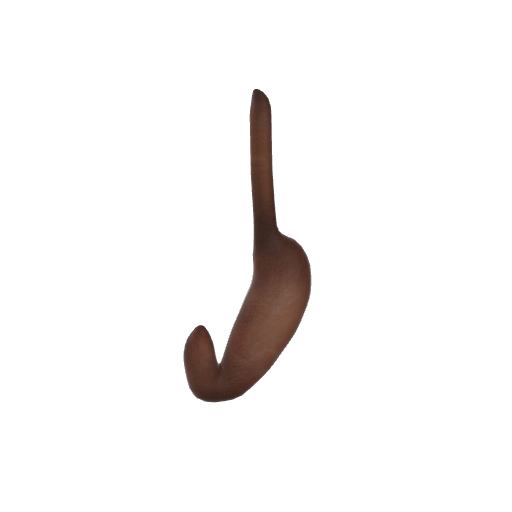Wiskoui
A wiskoui is an animal stomach or bladder, used as a container for storing and preserving animal oil or fat. To make it, the organ is emptied of its contents, filled with air and dried in the sun.
This wiskoui is made from a caribou stomach. These organs are also frequently harvested from seals and belugas (white porpoise).
“Wiskoui” is a word shared by various Algonquian languages, meaning “bladder”. Among the Wabanaki, it was called “ouskoué” in the 18th century, while among the Mi’kmaq, it was called “wiske” or “piske” in the 19th century.
References
Origin: Digital 3D drawing
Sources:
Aubéry, J. (1715). Dictionnaire françois-abnaquis [French-Abenaki dictionary][Manuscript, p. 529]. Musée des Abénakis d’Odanak.
Rand, S. T. (1888). Dictionary of the Language of the Micmac Indians (p. 38). Nova Scotia Printing.
Ross, Alain. (2022). L’exploitation des mammifères marins au Bas-Saint-Laurent entre 1675 et les années 1960, des histoires de pêche, de chasse et d’épaves de baleine [The exploitation of marine mammals in the Bas-Saint-Laurent region from 1675 to the 1960s, tales of fishing, hunting, and whaling wrecks].
Tenesles, N. (1851). The Indian of New-England, and the North-Eastern Provinces (p. 18). C. H. Pelton.
BAnQ. (n.d.). Estomac de caribou servant à conserver de la graisse [Caribou stomach used to store grease] [Photograph, 1949–1960]. Fonds Pauline Laurin, P60,S1,SS1,P99, Sept-Îles, QC, Canada.
